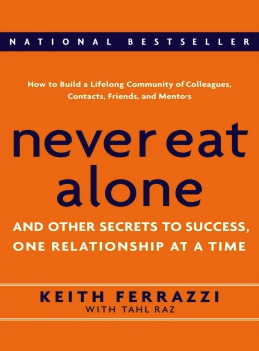When the editors of MillennialEYE first asked me if I would like to write a column for the new digital publication from a mentoring point of view, I was thrilled. But then it dawned on me. Mentor? Wait a minute. Uh oh, it’s happening, I’m getting old. Well, if that’s true, then supposedly with age comes wisdom and experience. Hopefully that’s what I will bring to this column each issue, and with the help of some friends as guests, make it entertaining as well. That’s my intent anyway, so here goes.
A few years ago, I was asked to speak to a group of new physicians and pass on some words of advice that they might find useful as they started their careers. I thought I would revisit those ideas for this first column. I divided up my talk into five themes that I thought were good starting points to a career in medicine. The first point is the importance of building and nurturing a strong network of mentors and peers. Second, understand that, even though you are new to your field, your ideas and thoughts have merit and should be expressed to as wide an audience as possible whenever the opportunity arises. Third is the importance of contributing to the fund of knowledge in your specialty through research and participation at meetings. Fourth is the need to give back to society in some way through donating your time and skills to those in need. Finally, I discussed the importance of finding balance in life through outside pursuits. This column discusses that first theme of building your personal network.
BUILDING NETWORKS
So what exactly is a network and why build one? I truly feel that a rich and diverse personal community of mentors and associates is the foundation on which a great career is built. Any goal that you set for yourself, whether it is professional or personal, cannot happen without the help of others.
How does one go about establishing a network? It doesn’t happen overnight nor does it happen by accident—but no one becomes a doctor by accident either. It takes dedication, time, and resolve to become a physician, and those are the same skills needed to build your personal network of advisors. One of the great things about being ophthalmologists, is that we cross paths with an amazingly diverse group of people every day in the office, at meetings, and socially. Most often, the problem is that we don’t take advantage of the opportunities that lie within those encounters. People who place an importance on connecting with others don’t let those opportunities pass them by. They also know how to make those connections become more than a fleeting encounter. They find meaningful ways to reconnect, enhancing the relationship for both parties without being obtrusive.
A couple years ago, I came across a book that, better than anything else I had seen, gave a road map to building a strong network. Now, whenever I receive a graduation announcement, I buy a copy of the book and send it to the new grad (along with a check). The book is Never Eat Alone by Keith Ferrazzi. I highly recommend you find it and give it a good read. It’s the type of book you can easily finish in one sitting. Inside is a concise discussion of the how and whys of creating a network written in an easy friendly style. Also, there are interesting side stories about well-known people who have achieved great success through the cultivation of a community of colleagues and mentors.

CONCLUSION
With the exception of my immediate family, I most value the community of friends and colleagues I have developed over the years. It has presented me with great professional opportunities as well as some of the more memorable experiences in my life. What efforts I have put into it, I have been rewarded with many times over. So make establishing a personal network a priority in your life, and you will no doubt say the same.

